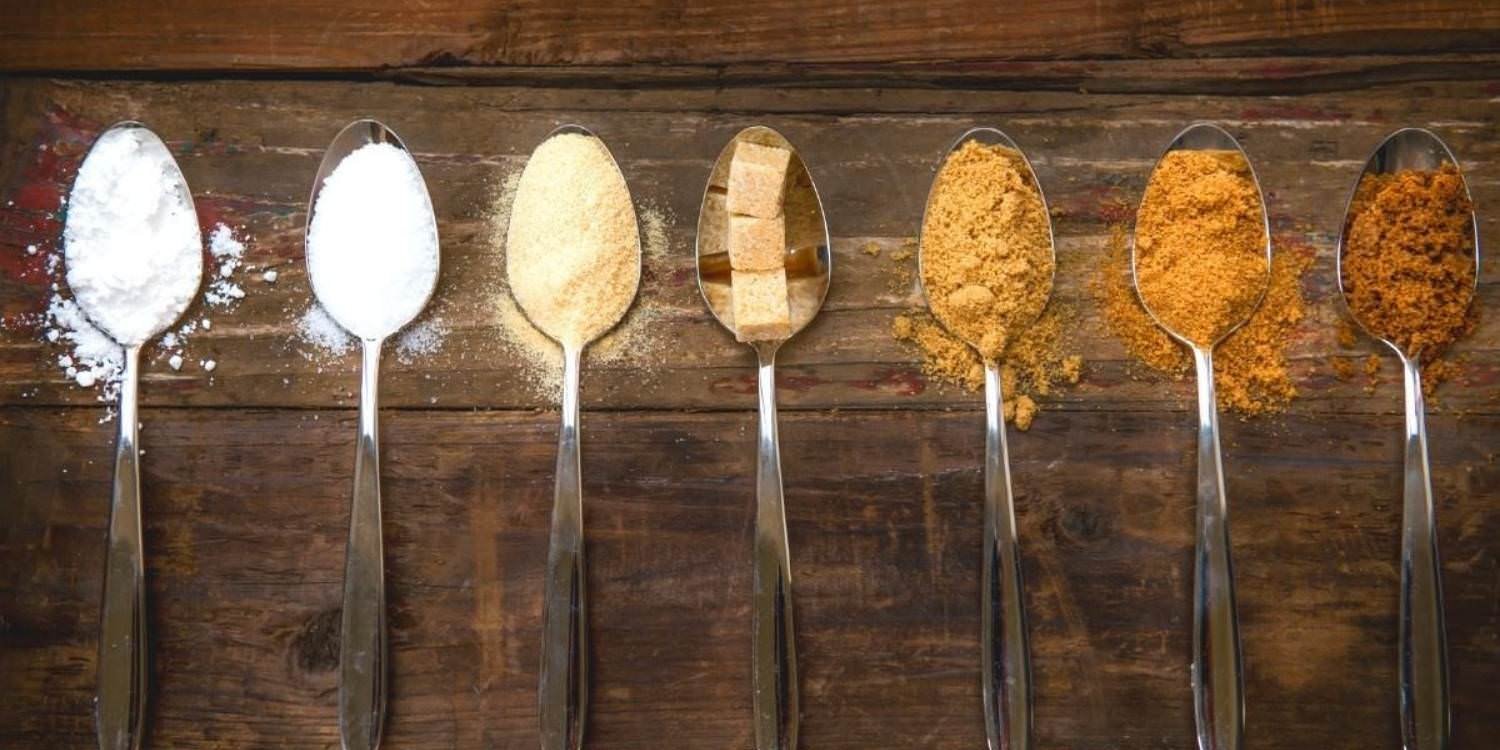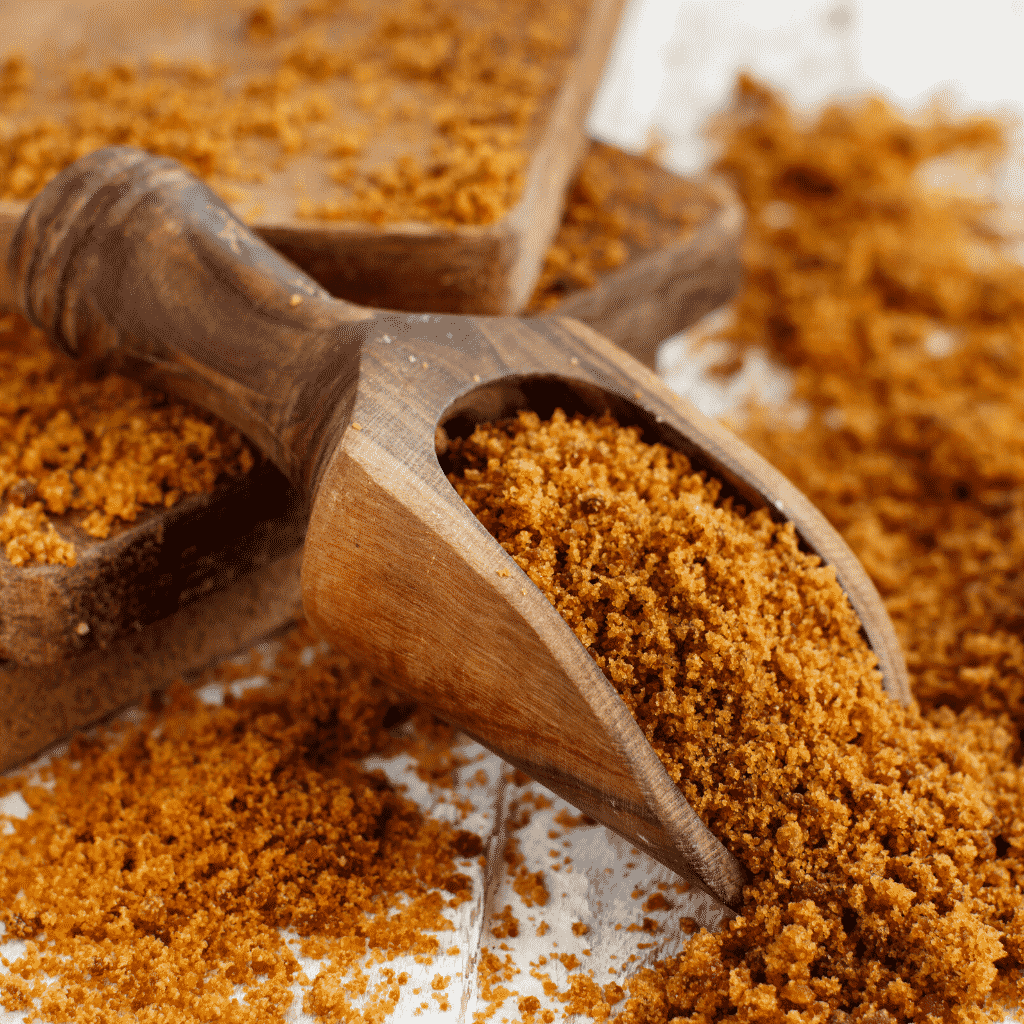The Ultimate Guide to Vegan Sweeteners: Our Top Picks
Let’s face it: All of us crave sweets, at least every now and then. It is a basic taste that we simply can’t or don’t want to eliminate entirely from our vegan lifestyle. Whatever the evolutionary purpose, craving and seeking out something sweet-tasting appears to be imprinted in our DNA. It doesn’t matter whether it is the sweet tooth after a meal we itch to satisfy with a piece of chocolate or the touch of sweetness some like to add to their salad dressing, most people will agree that “sweet” is an essential taste on our palate.
The downside is well known. “Traditional” sugars easily make us put on unwanted pounds. And many of the zero-calories chemical sweeteners on the market are actually harmful. It is also known by now that natural sugars like refined sugar or syrups are highly addictive. In fact, when we consume such sugary substances, our bodies release opioids and dopamine which makes us feel temporarily great and crave more when the “high” is over. At the same time, as with other addictions, the more sugar you consume, the less sensitive your body becomes to it, thus craving higher amounts over time.
We usually distinguish between natural (nutritive) and artificial (non-nutritive) sweeteners, which then can be divided into those which contain high or low (or zero) calories. Traditional, natural sweeteners such as white sugar, honey, or maple syrup are carbohydrates containing some amounts of starches and cellulose while being fairly high in calories. Conventional artificial sweeteners are low or zero caloric sweeteners, but for some time now, several natural and low or zero caloric sweeteners have become available, which are good alternatives to traditional sugars.
As vegans, we face a double challenge – though none that we cannot overcome. We want to make sure our source of sweetness is free of animal products (there are other sweeteners besides honey that are or contain animal products), and most of us are mindful when it comes to health and weight. Yes, refined white sugar, high fructose corn syrup, or aspartame may be considered vegan, but are they really the best option out there, having our wellbeing in mind? Some people swear on the beneficial effect high-quality honey such as Manuka has, but it is an animal product, after all. So, what else is out there? Below you will find our favorite options when it comes to satisfying that sweet desire; all of which are natural alternatives to refined sugar and honey.
Whole Fruits
A no-brainer, yet often overlooked. If you’re craving something sweet, consider some of the delicious and clearly healthiest options out there first. Dates, grapes, strawberries, mangos, papayas, melons, apples, pears… the list is endless. Aim to eat in season and as local as possible. If you need to sweeten your oats or are looking for a sweet punch in your baking, consider mashing in some ripe bananas (you will easily find lots of recipes online using ripe bananas such as banana bread or banana muffins). Side note: While not a fruit (but since we are talking about baking with whole foods as a source of sweetness), if you haven’t tried it yet, try to bake with cooked or baked sweet potatoes – you will be surprised!
Date Syrup & Date Sugar Vegan Sweetener
Dates are rich in vitamins, minerals, antioxidants, and amino acids. Date syrup and date sugar are unique as the process to produce them is minimal compared to other sweeteners (besides whole fruits) out there. Date syrup is basically the nectar of the date which is extracted by heating up dates in water, blending the mix, and filtering out what is not supposed to be in the syrup. Date sugar is made from dehydrated dates and tastes and looks quite similar to sugar, although it is a bit less sweet. Perfect as a sweet topping on your oats or (non-dairy) yogurt, but you can also use it as a source of sweetness in your baking and as an addition to your salad dressing.
Maple Syrup
Maple syrup, with its characteristic flavor, is made out of the maple sap of the maple tree by boiling it down into syrup. It has been around for a long time and is more common on some continents than others. It is quite versatile and just like date syrup, it can be used in all sorts of dishes. It contains potassium, calcium, zinc, iron, and manganese.
Some question the sustainability and purity of maple syrup, so make sure you understand where the syrup you are buying is coming from and have an idea about the quality of the product.
Fruit Concentrate Sweeteners
Similar to date syrup or date sugar, fruit concentrates require relatively little processing. They are produced by taking fruit juice and boiling it down until most of the liquid has evaporated, leaving a syrupy mass. Most fruit syrups retain some of the flavors of their respective fruits. These make a great topping for oats and even dairy-free ice cream!
Stevia
Stevia sweeteners are an extract from the leaves of the South American Stevia rebaudiana plant. It usually comes as a liquid, sometimes in granulated form, often mixed with another sweetener like sucralose. Since the body does not metabolize the glycosides contained in stevia, this option has zero calories, like most artificial sweeteners.
It is many times sweeter than refined sugar which is why very small amounts are needed. Some people perceive stevia to have a slightly bitter aftertaste which usually disappears after having used it a couple of times. Given its high concentration, it is probably not the best option for baking, but for those counting calories it definitely is one of the healthiest zero-calorie options available. It can be easily used to sweeten hot or cold beverages, yogurts, oats, salad dressings, sauces or whatever else is somewhat liquid, so the stevia drops can be easily mixed into it.
Coconut Sugar
Coconut sugar looks a little bit like brown sugar, but it tastes a tiny bit less sweet and has a somewhat characteristic taste. If you want to replace refined or brown sugar with coconut sugar, you can try to substitute 1:1 but may need to increase the amount of coconut sugar to hit your preferred sweet spot.
The production of this sugar is quite similar to maple syrup. It is won from the sap of the coconut palm which is then cooked and reduced with water until either a syrup or crystals remain. Given that the amount of sugar carbohydrates contained in 100 grams of coconut sugar are slightly lower than the amounts in refined sugar, and given that it also provides a good spectrum of micronutrients, this is a good refined sugar alternative. It should be noted that for those out there trying to lose weight, coconut sugar is not the best option — Stevia may be more appropriate.
Cane Sugar
If you don’t want to give up on traditional refined sugar (also called granulated sugar), try to replace it with less refined options, such as cane sugar. Unlike refined sugar, which can come from sugarcane or sugar beets, cane sugar is made from sugarcane, and the processing is considerably minimal compared to how refined sugars are produced. It is coarser and darker than the usual table sugar. Cane sugar is a great replacement option when baking, and you can use it pretty much in the same proportion as refined sugar.
Rather Not….
The above list is a selection of a few (vegan) alternatives to refined sugar, high fructose corn syrup, or honey. We are not listing all the options available. In general, try to stay away from artificial sweeteners such as aspartame or sucralose. As a vegan, you should also make sure to double check that your sweetener of choice is not a lactose derivative and thus dairy-based. We also recommend avoiding sugar alcohols like xylitol and sorbitol, not only because they are highly processed, but also because they are proven to cause gastrointestinal discomfort and have a laxative effect for many people.
Last but not least, two candidates that had been popular a short while ago, upon which you may stumble in your hunt for sweetness…
Brown Rice Syrup
Some cooking books and recipes still rely haveily on organic brown rice syrup. Rice syrup is produced from sprouted brown rice which is cooked with saccharifying enzymes that break the starches in the rice into maltose. It is then strained and reduced through heating until the syrup remains. Brown rice syrup has a light flavor and looks similar to honey but is less sweet.
Over the past years, however, studies have increasingly indicated that brown rice syrup and brown rice syrup products including toddler formula, cereal/energy bars, and high-energy foods used by endurance athletes (who use the sweetener as an alternative to high fructose corn syrup) “may introduce significant concentrations” of arsenic into one's diet.
Agave Syrup
As for agave syrup (or nectar), compared to other sweeteners it is high in free fructose (fructose naturally occurring in fruit) and recommended as a sweetener alternative by the American Diabetes Association if used in moderation. One should be mindful though, that while some studies recommend keeping the consumption of fructose in check, others argue that the high fructose amounts have adverse health effects, which is why one should avoid it altogether.
Know Your Foodprint!
The spectrum of sweetener alternatives to refined sugar and honey or artificial sweeteners has widened significantly over the past decades, which is great news. Many of them are not only healthier than our conventional sweeteners, but they also taste great. For those of you out there concerned about the environmental footprint of your sweetener (and which you leave by consuming it), make sure to have a look at how sustainable and green the production of your sweeteners is. FoodPrint is a good start. Once you understand the general problems with the production of your sweetener of choice, you can dwell further into how specific brands are produced, and make sure that you do good not only for your body, but also the planet…












